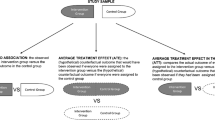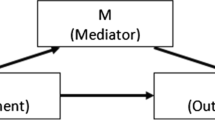The value of cancer treatment was assessed using a ‘natural experiment’ where patients who refused treatment served as no-treatment controls in a situation where withholding treatment to form a control group is unethical. Each cancer patient who refused treatment in Alberta, Canada between 1975 and 1988 was compared with five subjects who accepted treatment, matched on cancer site, age, number of cancers, and time period. Variables associated with treatment-refusal were included in Cox's proportional hazards model of survival, with death from cancer as the endpoint and deaths from other causes as censored observations. Treatment was refused at a rate of 7.5 per 1,000. One-third of patients who refused treatment had lung cancer and most had unstaged disease. Treatment refusal was associated with a difference in median survival of approximately nine months. Site-specific analyses showed a range of effects. Case fatality among the treated patients fell by approximately 10 percent during the 14-year study period. Even in advanced disease, treatment can result in improved survival. However, the results of this study must be interpreted with caution and cannot be generalized to all cancer patients.
Similar content being viewed by others
References
Ettinger WH. Forces of change in the health care system. Cancer 1991; 67: 1728–31.
Statistics Canada. Standard Occupational Classification—1980. Ottawa: Minister of Supply and Services Canada, February 1981.
American Joint Committee on Cancer. Manual for Staging Cancer. 3rd Ed. Philadelphia: JB Lippincott Co., 1988.
Greenland S, Morgenstern H, Thomas DC. Considerations in determining matching criteria and stratum sizes for case-control studies. Int J Epidemiol 1981; 10: 389–92.
Lui KJ. Estimation of sample sizes in case-control studies with multiple controls per case: Dichotomous data. Am J Epidemiol 1988; 127: 1064–70.
Schlesselman JJ, Stolley PD. Case-control Studies—Design, Conduct, Analysis. New York: Oxford University Press, Monographs in Epidemiology and Biostatistics, 1982; 150–68.
Taylor JMG. Choosing the number of controls in a matched case-control study, some sample size, power and efficiency considerations. Stat Med 1986; 5: 29–36.
World Health Organization. International Classification of Diseases, Ninth Revision. Geneva: WHO, 1977.
Cohen DG. Treatment refusal in adolescents. Semin Oncol Nurs 1986; 2: 112–6.
Tannock IF, Boyer M. When is a cancer treatment worthwhile? N Engl J Med 1990; 323: 989–90.
Nicolucci A, Grilli R, Alexanian AA, Apolone G, Torri V, Liberati A. Quality, evolution, and clinical implications of randomized, controlled trials on the treatment of lung cancer—A lost opportunity for meta-analysis. JAMA 1989; 262: 2101–7.
Gough IR, Dalgleish LI. What value is given to quality of life assessment by health professionals considering reponse to palliative chemotherapy for advanced cancer? Cancer 1991; 68: 220–5.
Liff JM, Chow W, Greenberg RS. Rural-urban differences in stage at diagnosis. Cancer 1991; 67: 1454–9.
Malawar MM, Buch RG, Thompson WE, Sugarbaker PH. Major amputations done with palliative intent in the treatment of local bony complications associated with advanced cancer. J Surg Oncol 1991; 47: 121–30.
Additional information
Dr Huchcroft and Mr Snodgrass are with the Alberta Cancer Board, Calgary, Alberta, Canada. Address correspondence to Dr Shirley Huchcroft, Senior Scientist, Division of Epidemiology and Preventive Oncology, Alberta Cancer Board, Calgary, Alberta, Canada T2N 4N2.
Rights and permissions
About this article
Cite this article
Huchcroft, S.A., Snodgrass, T. Cancer patients who refuse treatment. Cancer Causes Control 4, 179–185 (1993). https://doi.org/10.1007/BF00051311
Received:
Accepted:
Issue Date:
DOI: https://doi.org/10.1007/BF00051311




